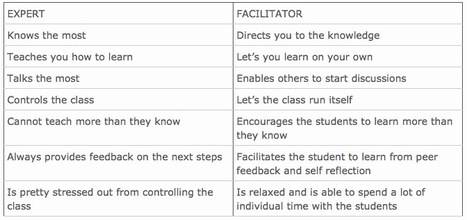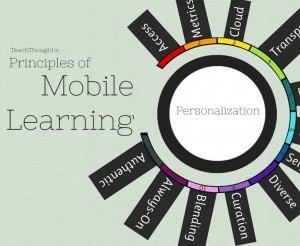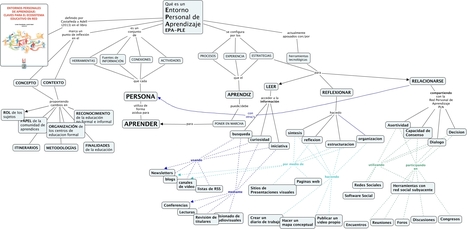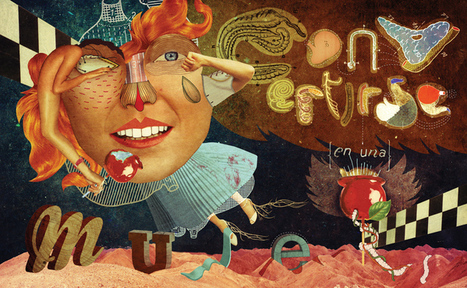Euroforum ha identificado las 7 tendencias más relevantes en formación y desarrollo corporativos que triunfarán en 2020. La inteligencia colaborativa, el aprendizaje experiencial de equipo con traslado formativo, las metodologías ágiles, el Big Data, la inteligencia artificial y la ciberseguridad se posicionan entre las principales directrices que dominarán la formación de las compañías durante este año.
Get Started for FREE
Sign up with Facebook Sign up with X
I don't have a Facebook or a X account

 Your new post is loading... Your new post is loading...

Alfredo Corell's curator insight,
June 7, 2013 6:44 PM
An expert always provides feedback on the next steps....
A facilitator... facilitates the student to learn from peer feedback and self reflection 
Begoña Iturgaitz's curator insight,
June 13, 2013 11:44 AM
focus on chart. The other ideas are the ones we've been dealing with for...ten years? Nire iritziz taula da interesgarriena. Gainerako ideiek +10 urte? dauzkate.

Jimena Acebes Sevilla's curator insight,
February 2, 2014 6:06 PM
12 Principios para tomar en cuenta sobre m-learning. 
Trinity Garcia's curator insight,
March 26, 8:15 PM
These are interesting principles of Mobile Learning that educators should know if they are trying to implement this method. |

Josi Sierra's curator insight,
June 9, 2013 8:57 AM
Ayuda este mapa a entender esta novedosa idea pedagógica de como aprenden las personas con tecnología? 
Pablo Barrios's curator insight,
June 11, 2013 3:08 PM
Mapa conceptual de la publicación del libro de Adell (2013)
Sample Student's curator insight,
May 5, 2015 10:14 PM
We often ask our students to create annotated bibliographies, and this focuses on their capacity to evaluate and make decisions about the validity, reliability and relevance of sources they have found. using Scoop.it, we can ask them to do much the same thing, but they will publish their ideas for an audience, and will also be able to provide and use peer feedback to enhance and tighten up their thinking. This is relevant to any curriculum area. Of course it is dependent on schools being able to access any social media, but rather than thinking about what is impossible, perhaps we could start thinking about what is possible and lobbying for change.
Sample Student's curator insight,
May 5, 2015 10:18 PM
We often ask our students to create annotated bibliographies, and this focuses on their capacity to evaluate and make decisions about the validity, reliability and relevance of sources they have found. Using Scoop.it, we can ask them to do much the same thing. But they will publish their ideas for an audience, and will also be able to provide and use peer feedback to enhance and tighten up their thinking. This is relevant to any age, and any curriculum area. Of course it is dependent on schools being able to access social media. But rather than thinking about what is impossible, perhaps we should start thinking about what is possible, and lobbying for change. Could you use a Scoop.it collection as an assessment task? |
















